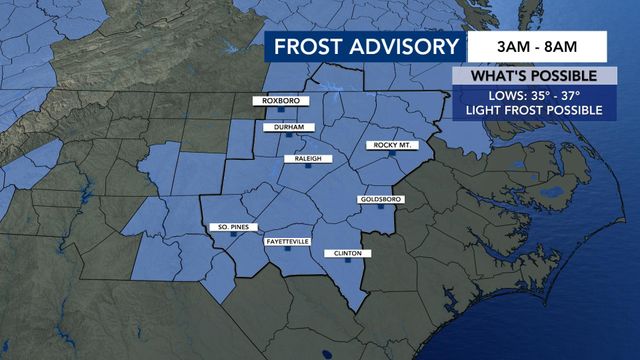Drought Spreads to All 100 N.C. Counties

For the first time this year, all 100 counties in North Carolina are experiencing either abnormally dry conditions, moderate, severe or extreme drought.
The latest U.S. Drought Monitor map, which was released Thursday, shows the moderate drought has expanded eastward into counties in the Triad, Triangle and the southern coastal plain. Also, seven counties in northeastern North Carolina that weren't previously listed in any drought category were added to the list of counties that are abnormally dry.
“Despite recent scattered thunderstorms, the drought is expanding into the southern coastal plains, the Triad and the Triangle,” Gov. Mike Easley said in a statement. “The northeastern parts of the state are also now abnormally dry, and until we receive enough rainfall to replenish the groundwater supplies, all North Carolinians need to do everything they can to conserve water.”
Rainfall measurements taken during the last two months show that North Carolina communities have received about 50 percent of their normal precipitation for this time of year.
Twenty-three systems have enacted voluntary water use restrictions, and nine have put mandatory water restrictions in place to deal with strained water supplies. Raleigh and nearby towns that purchase water from the city will begin mandatory consumption limits next week.
State agencies in 21 western North Carolina counties where the drought is the most severe have been ordered to stop all non-essential water use, such as washing vehicles, using water for ornamental purposes, watering grass and washing down sidewalks.
Easley urged residents and local government agencies in other counties statewide to observe water conservation directives in their communities and to voluntarily conserve water as much as possible. Conservation tips include the following:
Take shorter showers.
- Add compost and other organic material to your soil to improve its water-holding capacity.
- Keep a pitcher of cold water in the fridge, instead of running tap water until it is cool.
- Use a bucket to water your plants, not a hose.
- Water lawns and gardens early in the morning or late in the evening, not in the heat of midday to prevent evaporation.
A cold front moving in from the north is expected to bring rain and thunderstorms to central North Carolina late Friday and Saturday, WRAL Meteorologist Elizabeth Gardner said. But the rain likely won't be enough to put a dent in the drought.









